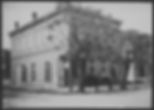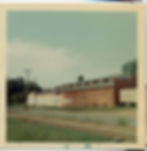History & Historical Locations

City of Marksville History
Founded in 1809 | It was Marc Eliche, so tradition has it, from whom Marksville got its name. Eliche, an Italian trader moving through the area in his wagon, was forced to stop when one of his wagon wheels broke down. While coping with the problem of repairing the wagon, the adventurer found what the Indians had known for centuries; this was such a beautiful country with its green prairies and moss-hung shade trees along the bayous and lakes that he could hardly leave it. He was also impressed with the friendliness of the Indians.
Marc Eliche never traveled any farther. He married Julie Carmouche of nearby Pointe Coupee in 1796, and they set up a trading post just south of the present Marksville City Hall site. He also obtained a land grant from obliging Spanish officials upon which to locate his home. Naturally, the location became an association with the name of the trading post owner, and “Marc’s Ville,” or “Marc’s Village,” or “Marc’s Farm” in the old French was an easy transition by Americans to the name “Marksville”.
The site was recognized on United States survey maps as early as 1809, and the date has been pinpointed by twentieth-century Marksville with festivals celebrating the event. By 1810, the population of the area was recorded as 783 whites; 404 slaves; and 22 free blacks. The 2010 Census reports that Marksville has a population of 5,702.
The old Avoyelles Parish Courthouse is a landmark with parish records dating back to the eighteenth century. The atmosphere around the courthouse is no less influenced by neighborly visits of old men sitting under the shade trees on the lawn and by the prevailing Victorian trim on downtown businesses. On the courthouse square are two historic markers that attest to two significant events in Avoyelles . . the Bowie Knife Marker documenting the making of the Bowie Knife in Avoyelles as the first; and the reference marker to nearby Fort De Russey which saw some of the most significant military action during the Civil War.
Also of great importance to the area was the national interest focused on the Avoyelles Indian and the stream of visitors who came to confer with Bob “Stu” Neitzel on archeological digs. It was Neitzel who appropriately enough left the story that delineates the area.



Marksville General Hospital 1969

08/22/1948 Marksville

1926 Construction MHS

1969 St Joseph Presentation




1897 Avoyelles Bank and Mayer Building



Now City Hall

Marksville1967




Marksville LA



